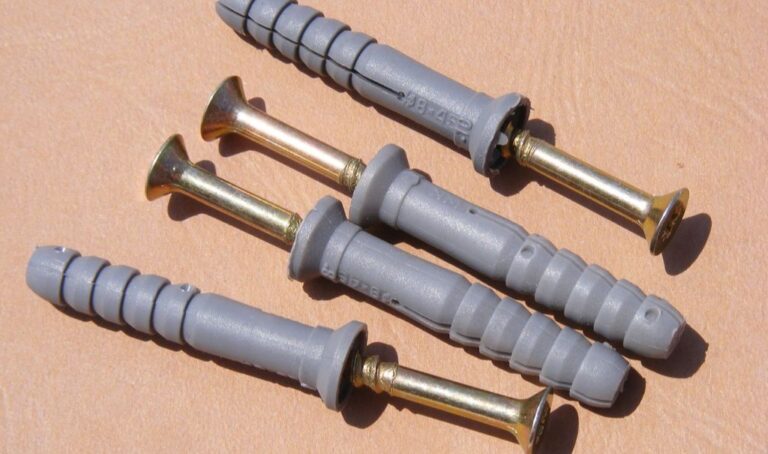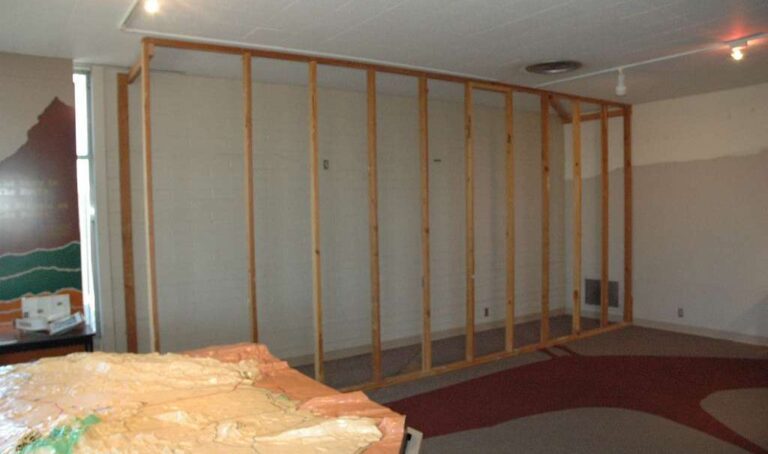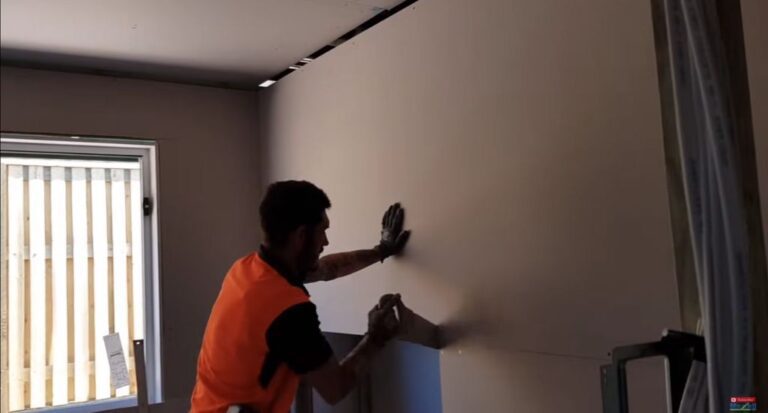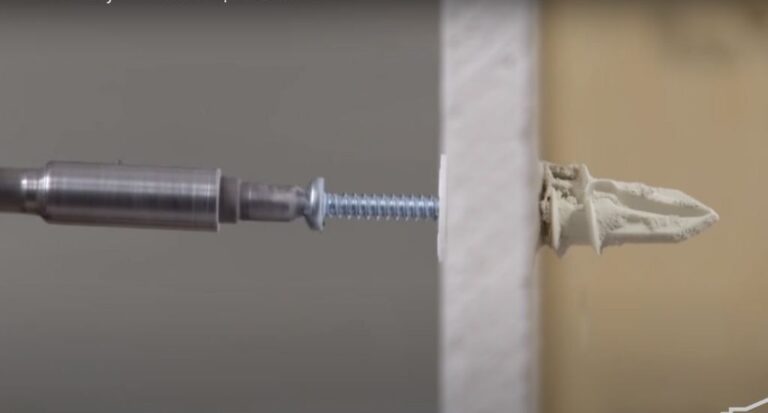Can Drywall Anchors Be Used in Brick?
After watching some random DIY videos on YouTube, I start to doubt the capacity of the bricks and drywall anchors in my home. Can drywall anchors be used in brick?
Drywall anchors can be used in brick with the proper installation and tools. Drywall anchors are primarily designed for use in materials like drywall and plaster, where they provide excellent support. However, when it comes to brick walls, the compatibility becomes a bit more complex.
I aim to empower you with the knowledge and understanding you need to tackle your brick-wall projects confidently. Whether you’re looking to hang shelves, artwork, or other decorative items, it’s essential to know if drywall anchors are a reliable choice for your specific situation.
Throughout this article, I’ll explore the ins and outs of drywall anchors and brick walls, shedding light on their compatibility. I’ll highlight the key factors that influence the success and durability of using drywall anchors in brick walls.
By the time you reach the end of this guide, you’ll be equipped with the necessary information to make an informed decision about whether drywall anchors are the right option for your brick wall mounting needs. So, let’s delve into the world of drywall anchors and brick walls, and unravel the mysteries together!
Understanding Drywall Anchors and Brick Walls
Before we dive into the compatibility of drywall anchors and brick walls, let’s take a moment to understand these two essential components. Drywall anchors, also known as wall anchors or wall plugs, are invaluable hardware devices used to provide extra support when attaching items to walls.
They are commonly utilized in drywall, plaster, and other similar wall materials. On the other hand, brick walls are renowned for their durability and strength.
Drywall anchors are typically designed for use in materials like drywall, where the surface may not provide enough strength to support heavy loads or withstand repeated stress. However, when it comes to brick walls, their composition, and sturdiness raise questions about the compatibility and effectiveness of drywall anchors. Can these anchors be trusted to hold securely in brick?
Let’s explore this compatibility in detail, assessing the viability of using drywall anchors in brick walls. By understanding the strengths and limitations of both drywall anchors and brick walls, you’ll gain valuable insights into whether this combination is suitable for your specific project.
Can Drywall Anchors Be Used in Brick?

While it’s possible to use drywall anchors in brick walls, it’s essential to exercise caution and consider specific factors. One crucial aspect to keep in mind is the type of drywall anchor being used.
Plastic expansion anchors, commonly used in drywall, are generally not recommended for brick walls due to their limited grip and potential for slipping. Instead, opt for metal sleeve anchors or masonry screws specifically designed for use in brick. These anchors provide a more secure hold in the sturdy brick material.
Additionally, the condition of the brick wall plays a significant role. If the bricks are damaged, cracked, or loose, it’s advisable to address those issues before attempting to use any type of anchor. A structurally sound brick wall is crucial for a successful and secure installation.
In summary, while drywall anchors can be used in brick walls under certain circumstances, it’s important to consider the type of anchor and the condition of the wall.
For optimal results, it’s often recommended to explore alternative anchoring methods specifically designed for brick walls. Let’s discuss these alternatives in detail in the subsequent sections.
Exploring the Compatibility of Drywall Anchors and Brick Walls
When it comes to using drywall anchors in brick walls, compatibility becomes a crucial factor. While drywall anchors are primarily designed for use in drywall and similar materials, they can also be used in brick walls under certain circumstances.
However, it’s important to note that not all drywall anchors are suitable for brick, and there are specific considerations to keep in mind.
Firstly, consider the type of drywall anchor you plan to use. Plastic expansion anchors, for example, are commonly used in drywall but are generally not recommended for brick walls due to their limited grip and potential for slipping.
Instead, consider using metal sleeve anchors or masonry screws specifically designed for use in brick. These anchors provide a more secure hold in the brick material.
Factors to Consider When Using Drywall Anchors in Brick
When using drywall anchors in brick, there are a few factors to consider to ensure a successful and secure installation. Firstly, evaluate the condition of your brick wall. Cracked or damaged bricks may not provide the necessary stability for anchor installation.
It’s essential to have a solid and structurally sound brick wall before proceeding with any anchoring method.
Next, consider the weight and size of the item you plan to hang. Brick walls can handle significant weight, but it’s crucial to select anchors with an appropriate weight capacity to ensure the load is properly supported.
Additionally, ensure that the anchor size matches the diameter of the mounting hole and provides a snug fit to maximize stability.
Proper installation technique is key when using drywall anchors in brick. Follow the manufacturer’s instructions carefully, which usually involve drilling a hole into the brick, inserting the anchor, and tightening it securely.
Be cautious not to overtighten the anchor, as it can damage the brick or compromise its stability.
Alternative Anchoring Methods for Brick Walls
When it comes to mounting items on brick walls, there are alternative anchoring methods that can provide a more reliable and secure solution. While drywall anchors can be used in brick under certain circumstances, exploring these alternatives can offer additional options for a successful installation.
- One popular alternative is the use of expansion anchors specifically designed for masonry applications. These anchors, such as wedge anchors or sleeve anchors, provide a strong grip within the brick material, ensuring a secure hold.
- They are typically inserted into pre-drilled holes in the brick and expand as the screw or bolt is tightened, creating a tight fit.
- Another option is the use of adhesive anchors, such as epoxy anchors or construction adhesives. These anchors rely on the strength of the adhesive to bond the item directly to the brick surface.
- This method eliminates the need for drilling holes in the brick and provides a clean, seamless look. However, it’s important to select high-quality adhesive products specifically designed for masonry applications to ensure long-lasting durability.
When deciding on the best anchoring method for your brick wall, consider factors such as the weight and size of the item, the condition of the brick, and your personal preference. Each method has its advantages and considerations, so choose the one that aligns with your specific needs and provides the necessary stability and security.
Conclusion
The compatibility of drywall anchors with brick walls depends on various factors. While drywall anchors can be used in brick under certain circumstances, it’s crucial to consider the type of anchor, the condition of the wall, and the weight and size of the item being mounted.
Alternative anchoring methods, such as expansion anchors and adhesive anchors, offer reliable options for securing items to brick walls. By assessing these factors and selecting the appropriate method, you can achieve a successful and secure installation.
Remember to always follow the manufacturer’s instructions and prioritize the structural integrity of your brick wall. With the right anchoring method, you can confidently display your favorite items while preserving the beauty and strength of your brick walls.






